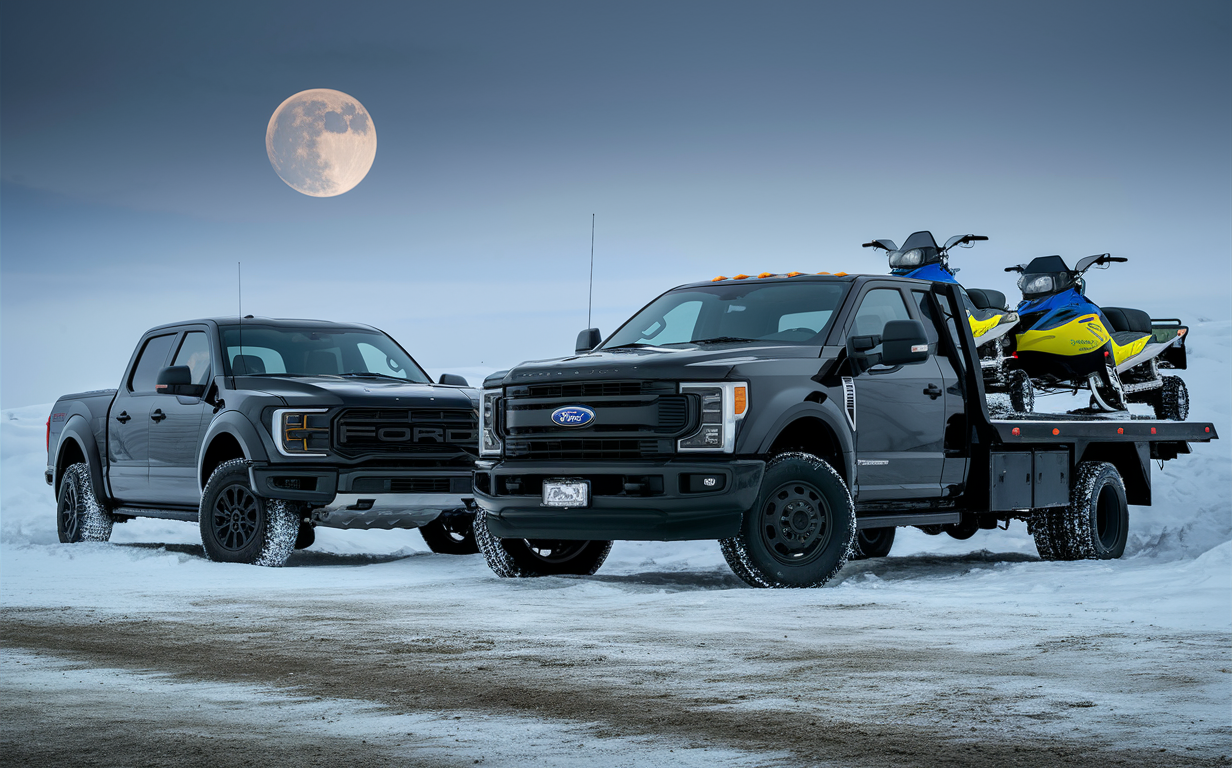Choosing the right truck for your towing needs is crucial, and understanding the difference between SRW (Single Rear Wheel) vs DRW (Dual Rear Wheel) configurations is a key part of that process. This article from Car Reviews & Guide will delve into the world of SRW and DRW, helping you make an informed decision that ensures a safe and enjoyable towing experience.
What are SRW and DRW?
SRW and DRW refer to the number of wheels on the rear axle of a truck.
SRW (Single Rear Wheel): The Standard Configuration
SRW trucks have a single wheel on each side of the rear axle. This configuration is the most common and is found on most pickup trucks. SRW trucks are typically more affordable and offer a more nimble driving experience.
DRW (Dual Rear Wheel): Built for Heavy Duty
DRW trucks have two wheels on each side of the rear axle. This configuration provides a larger contact patch with the road, resulting in increased weight capacity, stability, and towing capability. DRW trucks are often used for heavy-duty applications like hauling trailers, campers, and other large loads.
Detailed Comparison of SRW vs DRW
Now that we’ve established the basics, let’s dive into a detailed comparison of SRW and DRW configurations, highlighting their key differences and benefits:
Weight Capacity and Towing Capability
SRW: A Solid Foundation for Moderate Towing
SRW trucks are designed for moderate towing needs, typically offering a maximum towing capacity of around 10,000 pounds. While capable, SRW trucks may struggle with heavier loads or demanding terrain.
DRW: The Heavy Lifting Champion
DRW trucks are built for heavy-duty towing, offering significantly higher weight capacities, often exceeding 20,000 pounds. The added weight distribution and stability make them ideal for hauling large trailers, campers, and other demanding loads.

Stability and Handling
SRW: A Nimble and Agile Ride
SRW trucks offer a more agile and nimble driving experience, making them easier to maneuver in tight spaces and on winding roads. However, they may be less stable when towing heavy loads or navigating challenging terrain.
DRW: A Stable and Confident Ride
DRW trucks provide a more stable and confident ride, especially when towing heavy loads or navigating rough terrain. The increased contact patch with the road enhances traction and stability, making them ideal for demanding driving conditions.
Fuel Efficiency
SRW: A More Fuel-Efficient Choice
SRW trucks generally offer better fuel efficiency compared to DRW trucks due to their lighter weight and reduced rolling resistance.
DRW: Performance Comes with a Fuel Cost
DRW trucks, with their larger size and weight, typically have lower fuel efficiency compared to SRW trucks. However, their increased towing capacity and stability can make them a worthwhile investment for those who frequently haul heavy loads.
Cost: Finding the Right Balance for Your Budget
SRW: A More Affordable Option
SRW trucks are typically more affordable than DRW trucks due to their simpler design and lower production costs.
DRW: A Premium Investment for Heavy Duty
DRW trucks come with a higher price tag due to their specialized design and enhanced capabilities. However, their increased towing capacity and stability can make them a worthwhile investment for those who rely on heavy-duty hauling.
Frequently Asked Questions about SRW vs DRW
Which is better: SRW or DRW?
The best choice between SRW vs DRW depends on your specific towing needs and preferences. If you primarily haul moderate loads and prioritize fuel efficiency, an SRW truck is a good option. However, if you frequently tow heavy loads or require increased stability and weight capacity, a DRW truck is the better choice.
What are the pros and cons of SRW trucks?
Pros of SRW Trucks:
- Maneuverability: SRW trucks are generally easier to handle in tight spaces due to their smaller footprint.
- Fuel Efficiency: Typically, SRW trucks offer better fuel economy compared to their dual rear wheel (DRW) counterparts.
- Cost-Effective: Lower tire costs and potentially lower purchase price compared to DRW trucks.
- Ride Quality: Often provides a smoother ride due to less weight and simpler suspension.
Cons of SRW Trucks:
- Limited Towing Capacity: While capable of towing substantial loads, SRW trucks are generally limited compared to DRW models, especially in heavy-duty applications.
- Reduced Stability: When hauling heavy loads, SRW trucks may experience reduced stability compared to DRW trucks.
- Payload Capacity Limitations: The maximum payload capacity is lower than that of DRW trucks.
What are the pros and cons of DRW trucks?
Pros of DRW Trucks:
- Superior Towing Capacity: DRW trucks excel at towing heavy loads due to the increased traction and stability provided by the extra set of wheels.
- Increased Payload Capacity: The additional weight-bearing capacity allows for heavier cargo loads.
- Improved Stability: The wider stance enhances stability, especially when hauling heavy trailers.
Cons of DRW Trucks:
- Reduced Maneuverability: The wider track makes DRW trucks more difficult to maneuver in tight spaces and parking lots.
- Higher Operating Costs: Additional tires, fuel consumption, and maintenance costs are typically higher compared to SRW trucks.
- Reduced Fuel Efficiency: Due to the increased weight and wind resistance, DRW trucks generally have lower fuel economy.
What are some popular SRW vs DRW trucks?
Popular SRW trucks:
- Ford F-150
- Chevrolet Silverado 1500
- Ram 1500
Popular DRW trucks:
- Ford F-250
- Chevrolet Silverado 2500
- Ram 2500
Conclusion
Choosing between SRW vs DRW configurations is a crucial decision for anyone planning to tow heavy loads. SRW trucks offer a more affordable and fuel-efficient option for moderate towing needs, while DRW trucks provide increased weight capacity, stability, and handling for demanding towing applications. By carefully considering your towing needs and budget, you can choose the right wheels to ensure a safe and enjoyable towing experience.

Related Posts
Does Ford Offer Military Discount? Your Guide to Savings
Does a Ford Raptor Qualify for Section 179?
Ford Lightning Torque: Discover the Power of Electric Trucks